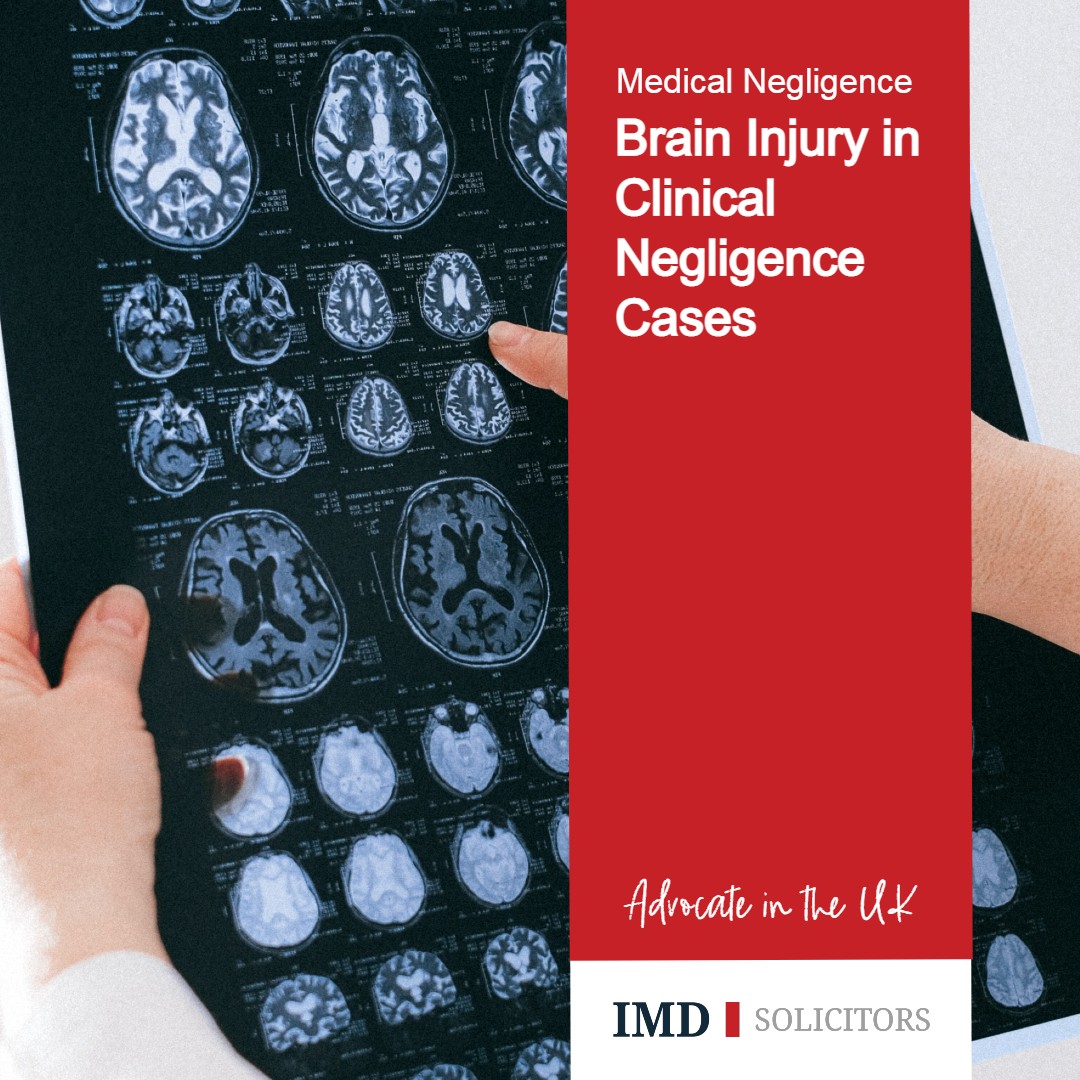
Brain injury claims caused by clinical negligence can be successful but these cases have many facets and can be complex to untangle and prove. Dealing with the right expert can make all the difference but also having an expert clinical negligence legal team to deal with your case is just as important. For a victim of medical negligence with a brain injury their lives will change overnight. The loss is much greater as there is a wider impact on the lives of their family members and their friends. Family members may suddenly find that their roles have changed and they are now carers looking after someone who was until the medical negligence, totally able to care for themselves. This can be enormously difficult for the victim of medical negligence but also for their family members.
Having the right experts can help as they will help the Claimant and their families navigate the complex journey of proving a case. As for example, in brain injury claims the defendant may insist that a neuropsychology assessment is done in order to evaluate the damage to the victim.
Neuropsychological assessment is a way of objectively assessing cognitive function and mental status, which includes memory IQ and the amount of time it takes to process information. Neuropsychological assessments assess the individual’s performance on a range of neuropsychological tests. This is done to establish the extent of the injury and how this is different to say how the person was before the negligence. Some victims of brain injury can be left with minor cognitive issues, such as loss of memory or inability to focus. Those with a serious brain injury can be left with severe cognitive and physical impairment. Potentially, the victim could be a talented university student who is no longer able to read following a brain trauma.
Referring to the above example of a neuropsychological assessment, just because a test has been done by an expert does not mean it is accurate and fair.
Sometimes failed assessments test can be used to argue fundamental dishonesty on the part of the Claimant. If fundamental dishonesty is found it is a criminal offence and in a civil claim this would undermine and even negate the claim.
So what is fundamental dishonesty? The dishonesty needs to go to the root of the claim for it to be fundamentally dishonest, this needs to be proved with clear and robust evidence. The defendants legal team will use this as evidence of dishonesty but in reality a failed performance test can arise from many reasons and may not be dishonest at all. For example, cognitive factors including a previous negative experience of health professionals can impact on the claimant’s ability to perform the test. The claimant could be mentally impaired and this could mean the patient just underperforms on the day. Or it could be as simple as the claimant not being in the right mood to do the test or simply fatigue or his mood and cognition is hindered by medication. Other causes such as anxiety can also lead to a failure of the test.
We, as lawyers for the Claimant have the task of considering all angles when proving a case. So, if a Claimant failed a neuropsychology assessment test, we would want to know why the assessment test was not successful. The failure of this test is not uncommon, in some groups the failure rate can be very high with people with severe cognitive impairment. Acquired brain injury or hypoxic injury can also result in a failure of this test as well as other psychiatric disorders.
Remote psychology assessments can be another example where due to the pandemic online assessments will be taking place as opposed to in person. These can be challenging as the use of technology may cause the failure of the assessment or the manner in which the test is administered. Wearing a headset which may be uncomfortable for the patient could also impact on concentration. If the person carrying out the assessment is not in the same room they may not be able to fully assess the person through remote assessment.
Those representing the claimant have the task of ensuring the circumstances in which the assessment is carried out is fair and appropriate for the claimant depending on injury and impairment they have suffered.
There will be further posts on brain injury and clinical negligence cases as this is just one example of the issues we have regard to when we represent our clients with a brain trauma caused by medical negligence. The writer gives thanks to the recent Skeleton series lectures, courtesy of 7 Bedford Row Chambers. These talks provided a thoughtful insight on the subject of brain injury and neuropsychological assessments. We are doing out bit by sharing this knowledge here.
This article is for general information only and does not constitute legal or professional advice. Please note that the law may have changed since this article was published.